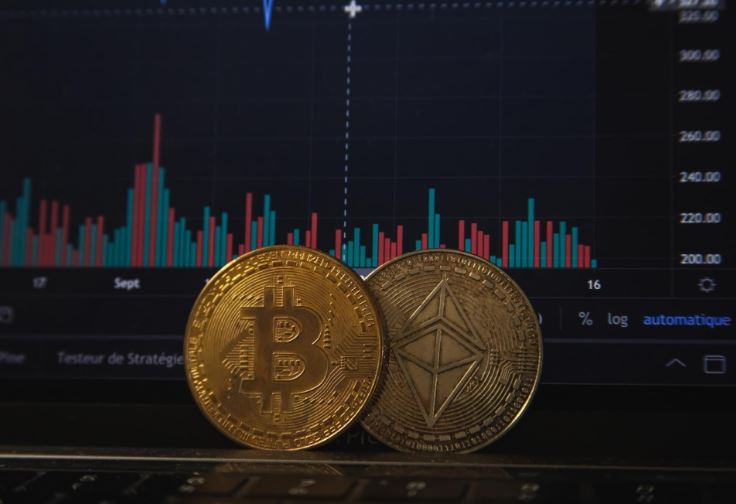Bitcoin and Ethereum face challenges, Liechtenstein embraces BTC, and Tether reports huge profit

Data from CryptoCompare shows that the price of the flagship cryptocurrency Bitcoin (BTC) started the week on a downward trend, moving from around $28,000 to a low of roughly $26,500, before it started to recover. BTC is now changing hands at $27,400.
Ethereum’s Ether, the second-largest digital currency by market capitalization, moved in a similar way with a downward movement from $1,850 to less than $1,750, before a recovery started to take it to the $1,830 mark.
Headlines in the cryptocurrency space this week varied, with some of the most significant surrounding congestion on the Bitcoin blockchain and glitches on the Ethereum network. Bitcoin’s congestion, partly driven by the growing popularity of its non-fungible tokens (NFTs) Ordinals, saw leading exchange Binance briefly halt BTC withdrawals before adjusting withdrawal fees.
The exchange revealed at the time it will keep on monitoring on-chain activity and “adjust accordingly if needed.” It also added it’s working on enabling BTC Lightning Network withdrawals, which would alleviate such situations in the future.
Bitcoin’s congestion comes at a time when liquidity has seemingly started dropping. According to CCData’s Order Book data, Bitcoin’s capacity to accommodate sizable orders without substantial price fluctuations has diminished since 2023.
Per the data, the amount of BTC needed to change the price by 1% dropped from 1,400 ($23 million) in January to 462 ($13 million) in April.
While Bitcoin suffered from congestion, an unexpected disruption occurred on Ethereum that saw the network become temporarily unable to fully authenticate transactions. The hiccup only lasted 25 minutes and while blocks were being proposed, they were not being finalized.
Participants using the blockchain noticed that their transactions were seemingly processing as usual, but during the 25-minute stretch of irregularity, these transactions were susceptible to being altered because of the malfunction.
Liechtenstein to accept Bitcoin for state services
Liechtenstein’s Prime Minister and Finance Minister Daniel Risc has revealed that the country will soon allow Bitcoin payments for state services, which will be instantly converted to Swiss francs, its official currency.
He also expressed interest in investing some of the state’s reserves, which amount to 2.23 billion francs (about $2.51 billion), in cryptoassets in the future. The country, which has no debt, saves three times its annual budget of 900 million francs (around $1 billion) and invests it in securities.
Meanwhile, the United States Department of Justice (DOJ) National Security Division is said to be investigating cryptocurrency exchange Binance for allegedly allowing Russians to use its platform in violation of US sanctions.
The company and its executives have not been accused of anything related to the investigation, which is part of a national security probe and a criminal division investigation. Binance restricted its services in Russia after sanctions were imposed on the country in April 2022.
However, according to a company executive, the exchange continued operations, blocking only certain areas of Ukraine no longer under government control and servicing non-sanctioned individuals.
The investigation comes at a time in which Binance has seen its spot trading volume suffer a 48% fall last month, marking the second consecutive month of declines for the cryptocurrency trading platform.
According to CCData’s latest Exchange Review report, Binance’s trading volume dropped to $287 billion last month, recording its second-lowest monthly trading volume since 2021
Over the week two of the world’s top market-making firms, Jane Street Group and Jump Crypto, have also chosen to scale down their cryptocurrency trading operations in the United States as regulators crack down on the industry.
Jane Street has been in the crypto market since 2017 while Jump Crypto, the crypto division of Jump Trading, is shrinking its US presence while growing its operations abroad. Both firms still operate as market makers on a smaller scale, and haven’t completely stopped their crypto activities.
Notably, the U.S. Chamber of Commerce, a formidable force in American corporate advocacy, has taken up arms for digital asset industry players who have been vocally critical of U.S. regulatory approaches.
The Chamber has thrown its considerable weight behind the legal challenge brought against the Securities and Exchange Commission (SEC) by Coinbase, which came as Coinbase asks the SEC to clarify its rules for the industry.
Tether reports $1.5 billion profit
Leading stablecoin issuer Tether has recently disclosed a Q1 net profit of $1.5 billion, a figure that more than doubles its 2022 performance from the same period. As of May 9, the company’s consolidated total assets were approximately $81.8 billion, while its consolidated liabilities amounted to $79.4 billion.
In a groundbreaking step, Tether, the entity responsible for USDT, has expanded its reserves report to include new categories. This marks the first instance of the company openly declaring its investment in bitcoin, physical gold, overnight repo, and corporate bonds.
The disclosed holdings include $1.5 billion in bitcoin and a substantial $3.3 billion in precious metals, which are likely being used to back Tether’s gold-backed cryptocurrency, Tether Gold (XAUT).
While Tether is reporting significant profits, crypto exchange Bittrex filed for Chapter 11 bankruptcy protection in the District of Delaware. The exchange estimated it had more than 100,000 creditors, between $500 million and $1 billion in assets, and between $500 million and $1 billion in liabilities.
Francisco Memoria is a content creator at CryptoCompare who’s in love with technology and focuses on helping people see the value digital currencies have. His work has been published in numerous reputable industry publications. Francisco holds various cryptocurrencies.